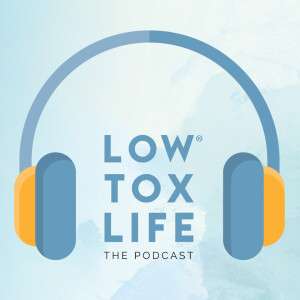
In this week’s show, I chat to Joseph Burgo, PhD about Shame - Shame itself and Shame, his new book which challenges us to use Shame as a springboard rather than be taken down by it. Resilience has a lot to do with that and Jo talks a lot about that too - how it’s cultivated and what early childhood has to do with it. Jo has been practising psychotherapy for more than 35 years and held licenses as a marriage and family therapist and clinical psychologist so we’re lucky to have him with us sharing his experience with patients - and with his own shame over the years and I truly feel this was a fresh conversation on the topic. I was challenged in my thinking and I hope you are too so that we can lead happier, more emotionally resilient lives. As always, you’ll find the show notes over on lowtoxlife.com/podcast Enjoy, Alexx x
QUESTIONS
What led you to study shame in your work?
In the early part of your book you take us through the “Shame spectrum” - can you talk us through that spectrum now?
In the start of the book you ask us to do a survey and count our points. I felt somewhat blessed to only score 12… so quite low on the scale of ‘life shame’ it seems, but so many people score high - a couple of my family members scored in the 30s and 40s due to schooling traumas…
Are we more scarred by the latter end of the spectrum and the higher score on the shame survey? Ie harder to heal?
And it might feel like “we can never shake it” when we learn that Shame is encoded in our DNA but we can, right?
Can we have a great self esteem and still feel shame? Does the foundation of a good self esteem make us more resilient in the face of shame?
What role can parents play in becoming more aware of our actions, the way we discipline our kids, the way we build their self esteem in those early years?
What does the act of burying and denying shame do to us - should we not be socially saying “Oh don’t worry, it’s ok” when a friend sees us shamed and we brush it off? What’s a better way to heal from shame?
When does self pity set in? Is it from repeat shame?
In clinic can you share a story of how you’ve taken someone from self pity to self esteem?
Something that happens to us often is when we’re proud or have good self esteem, we’re ‘put down’ / tall poppy syndrome… How do we navigate this when it happens without shaming someone else and maintaining our self esteem?
How do we navigate narcissists?
Something I love about your book is that we get exercises at the end to help us identify shame in our lives and our pasts and heal… Self awareness being the first step, right? Can you share an exercise we could all do this week to address shame in our lives?
We’re likely to feel shame at some point down the track - maybe even later today: What is the most important thing we can do when we experience it?
More Episodes
Create your
podcast in
minutes
- Full-featured podcast site
- Unlimited storage and bandwidth
- Comprehensive podcast stats
- Distribute to Apple Podcasts, Spotify, and more
- Make money with your podcast
It is Free
- Privacy Policy
- Cookie Policy
- Terms of Use
- Consent Preferences
- Copyright © 2015-2024 Podbean.com




